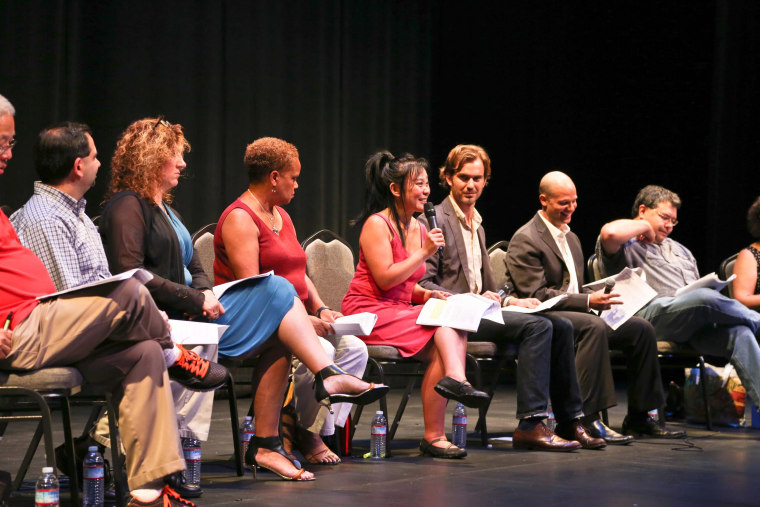In the wake of the Seattle Gilbert and Sullivan Society’s controversial staging of The Mikado, which sparked national outrage with its all-white cast performing in "yellowface," the Seattle Repertory Theatre and the Seattle Office of Arts and Culture hosted a community forum on Artistic Freedom and Artistic Responsibility to consider how artists and arts groups can approach new and historical work in a way that is respectful and responsive to changing audience demographics.
Although Seattle Repertory Theatre has no association with the Seattle Gilbert and Sullivan Society beyond a shared stage space that is required by their lease, they saw the controversy over The Mikado as an opportunity to take on, what Kathy Hsieh of the Seattle Office of Arts and Cultures jokingly called, “a scary leadership role.”
With a diverse lineup of theater directors, arts administrators, and community members, about 400 people attended the “collaborative conversation” about making productions accurate and inclusive, balancing artistic freedom with responsibility to the community, and listening to and engaging with audiences. The forum was livestreamed for people around America and could be followed at #SeattleAFAR on Twitter.
The organizers chose not to focus on The Mikado controversy because, according to Hsieh, “It's not just one show or one incident that's at issue. The underlying politics of why the controversy even happened are what need to be addressed.”
"You have artistic freedom, but the audience can also tell you what they think of it."
“The most important goal we had for last night was really aimed at creating a tiny opening so that people, who may not have even been aware why it was an issue, know now that it is an issue,” said Hsieh. "So that we can actually do the equity-building work to dismantle racism. That is our ultimate goal.”
Los Angeles-based actor and director Chris Tashima was frustrated by the focus on artistic freedom rather than on the racism of The Mikado. “If these issues were understood (by white theater producers), they'd realize that their ‘Artistic Freedom’ is not being threatened, so much as, their ignorance is being put on display."
“You have artistic freedom, but the audience can also tell you what they think of it," said panelist Roger Tang of the Asian American Theater Review. "If you do a half-ass job directing, you will hear about it. And you should.”
